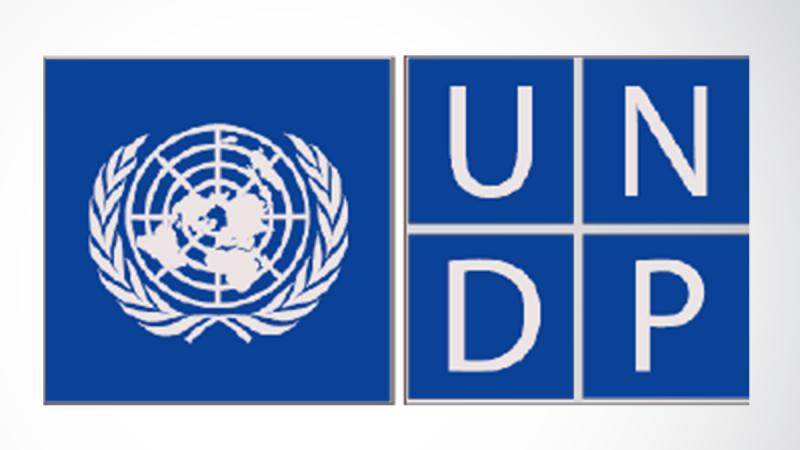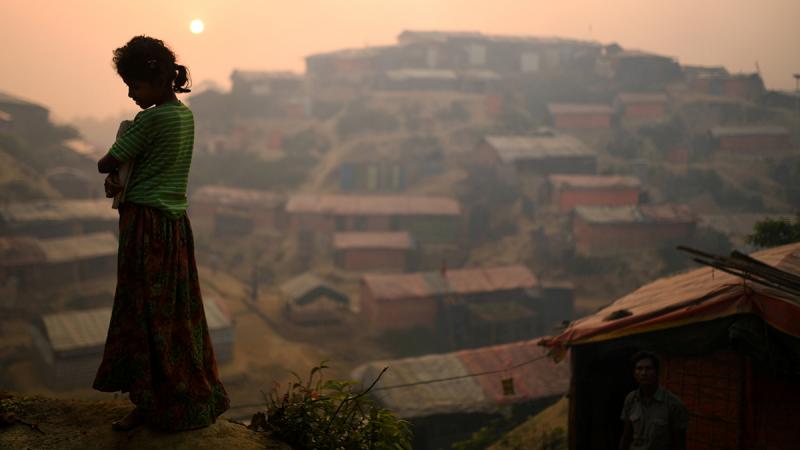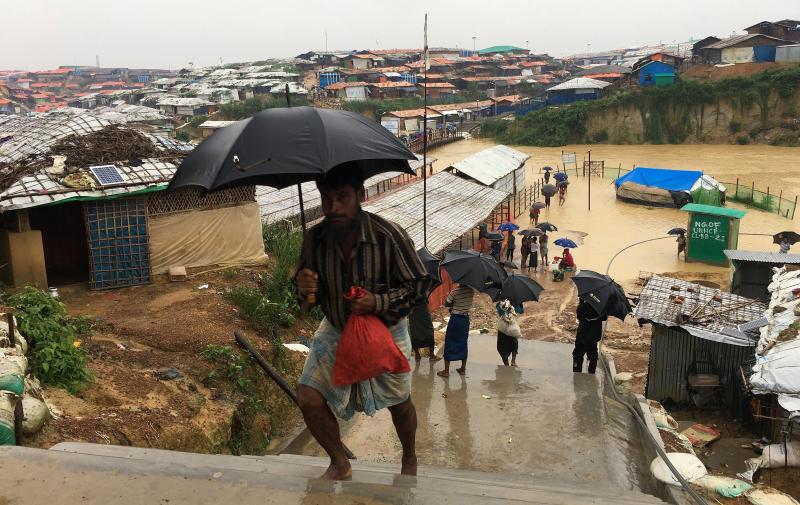 A total of 4300 acres of hills and forests were cut down to make temporary shelters, facilities and cooking fuel for Rohingyas in Ukhia and Teknaf of Cox’s Bazar, threatening the biodiversity of the areas.
A total of 4300 acres of hills and forests were cut down to make temporary shelters, facilities and cooking fuel for Rohingyas in Ukhia and Teknaf of Cox’s Bazar, threatening the biodiversity of the areas.
“Due to the indiscriminate hill cutting to provide shelters to the Rohingyas, the terrain of the hill has lost their natural setting, causing a potential risk of landslides,” said a study report of UNDP and UN Women unveiled at a city hotel on Tuesday.
With the support from Environment, Forest and Climate Change Ministry, United Nations Development Programme (UNDP) and UN Women conducted the survey on “Environment Impact of Rohingya Influx”.
Environment, Forest and Climate Change Anisul Islam Mahmud attended the launching ceremony as the chief guest while UNDP Country Director Sudipto Mukherjee, Environment Department Director General Dr Sultan Ahmed, Bangladesh Forest Department Chief Conservator of Forests Mohammed Shafiul Alam Chowdhury and Disaster Management and Relief Ministry Additional Secretary Mohammad Mohsin, among others, joined it. The report said from a total forests of 1502 hectares, about 793 hectares of natural forest land has been encroached while around 3,000 to 4,000 acres (1200-1600 ha) of hill land in the Teknaf-Ukhia-Himchari watershed area have been cleared of vegetation.
The report said from a total forests of 1502 hectares, about 793 hectares of natural forest land has been encroached while around 3,000 to 4,000 acres (1200-1600 ha) of hill land in the Teknaf-Ukhia-Himchari watershed area have been cleared of vegetation.
It identified as key cause for the encroachment, the facts that nearly 6800 tonnes of fuel-wood are collected each month and each of the Rohingya families use on an average 60 culms of bamboo to construct their temporary shelters.
The report also found the thousands of shallow tube wells dug as threats to the aquifers. Air pollution has risen due to increased vehicular traffic and smoke from firewood burned by Rohingyas and due to lack of recycling system, polythene bags and plastic bottles are all pilling up in various parts of the area. Speaking on the occasion, Anisul Islam Mahmud said the government has given shelter to the Rohingya people on humanitarian ground but the huge exodus of Rohingya people has made a significant impact on the environment in Cox’s Bazar.
Speaking on the occasion, Anisul Islam Mahmud said the government has given shelter to the Rohingya people on humanitarian ground but the huge exodus of Rohingya people has made a significant impact on the environment in Cox’s Bazar.
He urged the UNDP and other international forums and communities to come forward for developing living standards of local people as well as Rohingyas giving priority to the conservation of environment of the areas.
Sudipto Mukherjee said Cox’s Bazar is hosting over one million Rohingyas since August 25, 2015 and the emergency is putting immense pressure on scarce natural resources in the area resulting in degraded natural forests, barren hills and an emerging water crisis.
He said the situation demands immediate investments in restoring the environment and ecosystem as part of the Bangladesh government response in Cox’s Bazar. Source: BSS
 National
National
30749 hour(s) 38 minute(s) ago ;
Midnight 12:32 ; Saturday ; Apr 20, 2024
Hills, forests destroyed to shelter Rohingyas: UNDP report
Send
Bangla Tribune Desk
Published : 09:45, Sep 19, 2018 | Updated : 10:25, Sep 19, 2018
Published : 09:45, Sep 19, 2018 | Updated : 10:25, Sep 19, 2018
0 ...0 ...
/pdn/
Topics: Top Stories
- KOICA donates medical supplies to BSMMU
- 5 more flights to take back British nationals to London
- Covid19: Rajarbagh, Mohammadpur worst affected
- Momen joins UN solidarity song over COVID-19 combat
- Covid-19: OIC to hold special meeting
- WFP begins food distribution in Cox’s Bazar
- WFP begins food distribution in Cox’s Bazar
- 290 return home to Australia
- Third charter flight for US citizens to return home
- Dhaka proposes to postpone D8 Summit
Unauthorized use of news, image, information, etc published by Bangla Tribune is punishable by copyright law. Appropriate legal steps will be taken by the management against any person or body that infringes those laws.
Bangla Tribune is one of the most revered online newspapers in Bangladesh, due to its reputation of neutral coverage and incisive analysis.
F R Tower, 8/C Panthapath, Shukrabad, Dhaka-1207 | Phone: 58151324; 58151326, Fax: 58151329 | Mob: 01730794527, 01730794528


